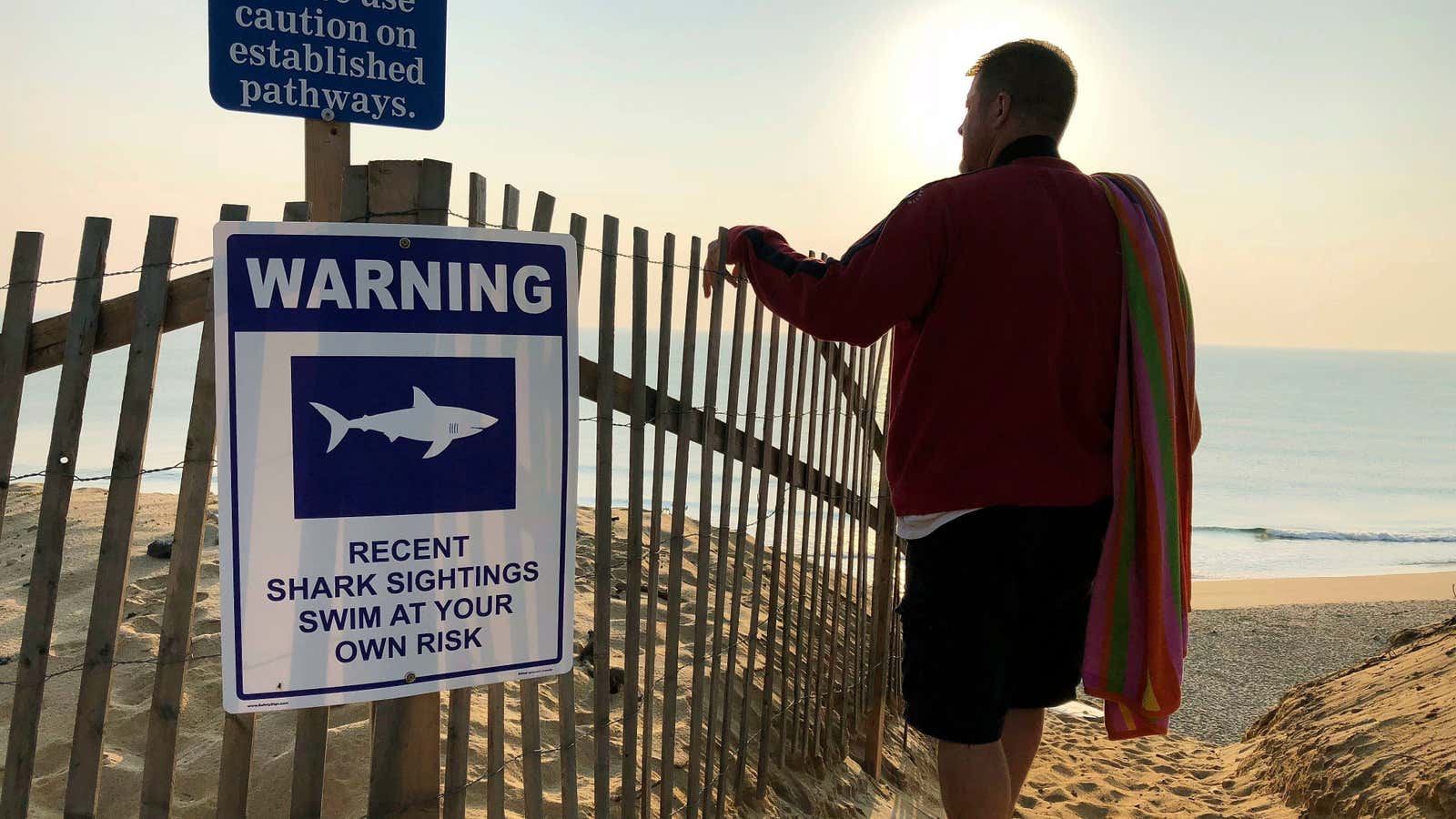For more than 60 years, every known shark attack against humans has been recorded in a database known as the International Shark Attack File. This year, scientists at the Florida Museum of Natural History at the University of Florida, where the database is housed, noticed a striking change: a sharp and sudden decrease in shark attacks around the world.
There were 66 unprovoked shark-on-human attacks in 2018—a figure that doesn’t count the 34 incidents when sharks bit people trying to harm or harass them, such as fishermen or over-enthusiastic divers. That’s a significant drop from the 88 unprovoked attacks that took place the year before, and from the five-year average of 84 annual attacks. Four of those 66 bites in 2018 proved fatal, with sharks claiming human lives on the shores of Australia, Egypt, Brazil, and the US.
The decline caught researchers by surprise, as shark-attack rates have risen steadily over the years along with the beach-going population.
“Statistically, this is an anomaly. It begs the question of whether we’re seeing fewer bites because there are fewer sharks—that would be the ‘glass-half-empty’ interpretation,” said Gavin Naylor, director of the museum’s shark research program, in a press release. “Or it could be that the general public is heeding the advice of beach safety officials. My hope is that the lower numbers are a consequence of people becoming more aware and accepting of the fact that they’re sharing the ocean with these animals.”
Unprovoked bites dropped by half in Florida, which leads the US in shark-on-human violence and is home to one-quarter of the world’s documented shark attacks. Most come from blacktip sharks, an animal that used to regularly congregate off the coasts of Florida, Naylor said. The population of blacktips has plummeted in the last two or three years, he said, which likely explains the drop from 31 Florida attacks in 2017 to 16 last year.
A more ecologically optimistic view of the change is that safety officials are doing a better job informing the public when sharks are present at a beach, and the public is doing a better job of heeding those warnings. If the trend keeps up, the already minuscule chance of being attacked by a shark while swimming is now even smaller.
